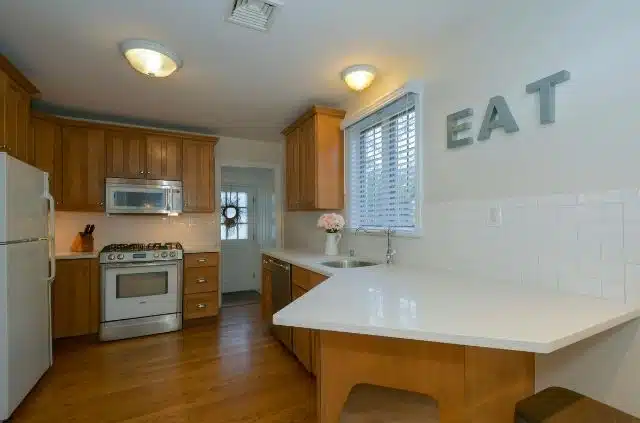Your HVAC system is crucial for maintaining a comfortable home environment, keeping you warm in the winter and cool in the summer. Like any major appliance, however, it needs regular care to run efficiently and reach its full potential lifespan. Investing in regular maintenance can extend the life of your HVAC system, save on energy costs, and improve indoor air quality.
The Longevity Factor
Most HVAC systems are built to last between 15 to 20 years. According to This Old House, a well-maintained system can reach or even exceed that 20-year mark, while one that lacks regular care may fail well before its time. Regular maintenance tasks, like changing filters and cleaning components, reduce the likelihood of unexpected breakdowns and help your system age gracefully. As an added benefit, routine inspections can help technicians spot potential issues early, preventing minor problems from becoming major, costly repairs.
Energy Efficiency and Cost Savings
One of the most compelling reasons to schedule regular HVAC maintenance is to maximize energy efficiency, which directly affects your utility bills. When your system is clogged with dust and debris, or when parts are worn out, the HVAC unit has to work harder to reach the desired temperature, consuming more energy in the process. By addressing these issues with regular tune-ups, you can lower the system’s workload, which translates into savings on your energy bills.
Regular maintenance also reduces the strain on your system’s core components, like the compressor and heat exchanger, which are both expensive to repair or replace. By keeping these elements clean and ensuring they operate efficiently, maintenance extends their lifespan and preserves the overall integrity of the unit.
The Role of Duct Cleaning in HVAC Health
The ductwork in your home plays a crucial role in delivering heated or cooled air to each room. Over time, dust, pet dander, and other particles can build up inside the ducts, which can reduce airflow and force your HVAC system to work harder to maintain comfortable temperatures. According to the Environmental Protection Agency (EPA), air ducts should be cleaned every 3 to 5 years to help maintain indoor air quality and optimize system efficiency. Not only does duct cleaning help your HVAC system run more smoothly, but it also contributes to a healthier indoor environment by reducing allergens and pollutants in your home.
Combatting Heat Loss for Better HVAC Efficiency
Approximately 30% of a home’s heating energy is lost through its windows, meaning that even the best-maintained HVAC system can lose efficiency if the home itself is not adequately insulated. This heat loss puts additional strain on the heating system, causing it to cycle on more frequently and wear down faster. Simple upgrades, like adding window treatments, installing double-pane windows, or sealing any air leaks, can significantly reduce this energy loss. In addition to regular HVAC maintenance, addressing insulation issues in your home is another effective way to prolong the life of your system.
Common Maintenance Tasks That Extend HVAC Life
There are several maintenance tasks that are recommended for keeping your HVAC system in peak condition:
Replace Air Filters Regularly
Air filters collect dust and debris, preventing them from entering the HVAC system. Over time, these filters become clogged and restrict airflow. Replacing filters every 1 to 3 months not only improves air quality but also helps your system work more efficiently.
Clean the Coils
The evaporator and condenser coils are essential for the heating and cooling process. Dirty coils reduce efficiency, making it harder for the system to transfer heat effectively. Cleaning these coils as part of your regular maintenance helps your HVAC system cool or heat your home with less effort.
Inspect and Seal Ductwork
Leaky ducts allow conditioned air to escape, wasting energy and forcing the system to run longer. By sealing these leaks, you can improve your system’s efficiency and reduce the risk of overworking the system.
Check Refrigerant Levels
Low refrigerant levels can cause your air conditioner to run inefficiently, potentially leading to compressor failure. As part of regular maintenance, technicians check and refill refrigerant as needed, preventing costly repairs.
Lubricate Moving Parts
Components like fans and motors have moving parts that require regular lubrication. This minimizes friction and ensures the system runs quietly and smoothly, extending the life of these essential parts.
The Long-Term Benefits of Regular HVAC Maintenance
Regular HVAC maintenance provides a host of benefits, from extending the life of your system to ensuring optimal indoor comfort. By keeping your system clean, efficient, and well-tuned, you’ll reduce your chances of unexpected breakdowns and cut down on repair costs. And because a well-maintained system uses less energy, you’ll also save on monthly utility bills, making it a cost-effective choice in the long run.
Investing in maintenance may feel like an upfront expense, but it’s a small price to pay for peace of mind and a comfortable home. With these regular upkeep practices, you can maximize your HVAC system’s performance, improve your home’s energy efficiency, and enjoy a comfortable living space for years to come.



